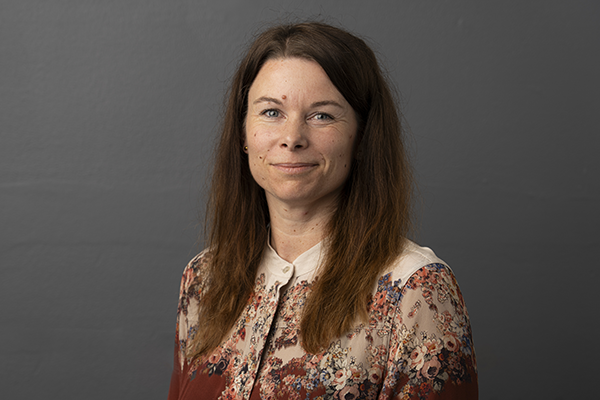Julie Laursen
Research leader

Project title
EXCEL - Exceptional Prisoners in Exceptional Prisons: Challenges to Order in the contemporary Danish Prison Service
What is your project about?
Due to a shortage of staff, an increase of prisoners and challenges to order and security represented by certain groups of prisoners, the Danish Prison Service is currently in a very critical condition. EXCEL’s overarching aim is to advance our understanding of order, conflict and staff-prisoner relationships in the Danish Prison Service by investigating three different groups of prisoners who pose challenges to order. The three sub-studies synthesize the same overarching question: How is order perceived and produced in policy and practice in the contemporary Danish prison service? This question yields important knowledge about prisoners who challenge order, and how staff members try to contain it, as well as the ways in which order is locally negotiated. EXCEL will significantly enhance our understanding of the relationship between punitive policies and on-the-ground practices, and challenge current assumptions about the nature of punishment in the Nordic countries.
How did you become interested in your particular field of research?
I became a prisons researcher somewhat by accident when I applied for my Ph.D. in a larger research project revolving around social skills. My role in the project was to investigate cognitive skills programmes such as Anger Management in Danish prisons. After my Ph.D., I got a postdoc at the University of Cambridge, where we investigated the differences between prisons in England & Wales and Norway. I travelled between Norway and England for several years and - together with my colleagues - conducted approximately 750 interviews and over 1000 surveys. This study gave me a great understanding of the difference between so-called neoliberal (England) and Nordic penal policies, not least how they are experienced by those who live and work in prisons. I lost my heart to prison research because prisons are such special places that invite us to ask big questions about trust, meaning, power, order, guilt and shame. I am particularly interested in the role that the welfare state plays in Nordic prisons and how penal policy solutions are negotiated in practice in prisons.
What are the scientific challenges and perspectives in your project?
The project asks fundamental questions about how officers and prisoners - through a constant, subtle negotiation - create order in a fundamentally 'disorderly' place. My project challenges and moves national and international prison research forward in three ways: Firstly, the project combines the penal policy, institutional and individual level to investigate how policies are negotiated in practice, which creates valuable knowledge for other welfare state contexts. Secondly, we do not know enough about who the 'most challenging' prisoners are. I use these groups of prisoners as a prism to study order in Danish prisons, because they test the limits of the welfare state - who are the troublesome, ‘dangerous’ prisoners who apparently cannot or will not be rehabilitated? Thirdly, we lack empirical studies of small, secure regimes in prisons both nationally and internationally.
What is your estimate of the impact, which your project may have to society in the long term?
The project creates valuable knowledge about prisons in general, and especially about order, security and relations between staff and prisoners, for the benefit of both the prison scholarship and the public. I am often met with great interest and curiosity about my field of research both from colleagues at the Faculty of Law, at other faculties and among practitioners in the Danish Prison and Probation Service. I also experience interest from the surrounding community in the sense that most people have an idea about what prisons are and who live and work there, but that knowledge is often based on films and books. I believe that our research can nuance the wider population's view of prisons and those who live and work there. I also hope that the project will gain political attention because penal policy, which is often shaped far away from the prisons, have great significance for everyday life here. It is therefore important that decision-makers are aware of how penal policies play out in practice.
Which impact do you expect the Sapere Aude programme will have on your career as a researcher?
The Sapere Aude: DFF Starting Grant is a huge milestone and a very big recognition, for which I am incredibly grateful. I am so fortunate that many people have believed in me over the years - from my Master’s Degree thesis and Ph.D. supervisors, managers, colleagues to various mentors - and I am excited about really standing on my own two feet as a research leader with this grant. I am especially looking forward to creating a team with two postdocs and a research assistant, and work together to create solid research results. The grant enables me to build a strong and sustainable prison research environment at the University of Copenhagen, which will benefit both younger Ph.D. students and more established researchers. The grant will also pave the way for new grants from, for example, the European Research Council.
Background and personal life
I live in a modern commune in Lejre with my husband Jens and our two young children. We lived in Cambridge, England for 4 years, where we left a little of our soul and many good friends and colleagues, when we went home to Denmark. I spend most of my free time on the floor with my children and husband, and I love to see my family and friends and read as many books as possible. You can also find me running around in Lejre's beautiful nature.
View all research leaders here
Research institution
University of Copenhagen
Research field
Criminology
City of your current residence
Lejre
High school
Svendborg Gymnasium
